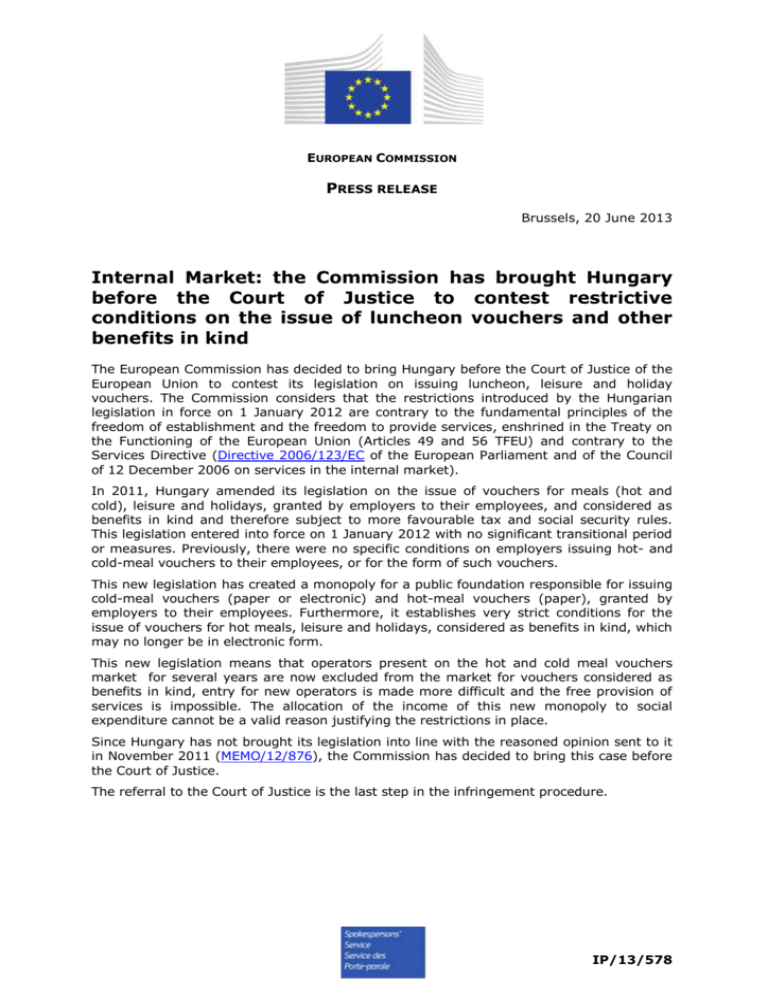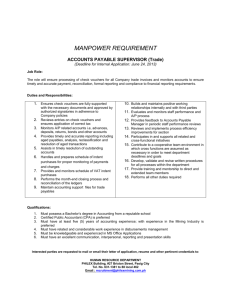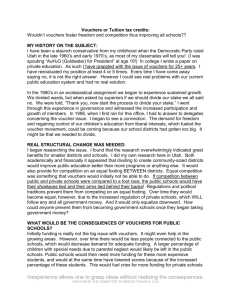DOC - Europa
advertisement

EUROPEAN COMMISSION PRESS RELEASE Brussels, 20 June 2013 Internal Market: the Commission has brought Hungary before the Court of Justice to contest restrictive conditions on the issue of luncheon vouchers and other benefits in kind The European Commission has decided to bring Hungary before the Court of Justice of the European Union to contest its legislation on issuing luncheon, leisure and holiday vouchers. The Commission considers that the restrictions introduced by the Hungarian legislation in force on 1 January 2012 are contrary to the fundamental principles of the freedom of establishment and the freedom to provide services, enshrined in the Treaty on the Functioning of the European Union (Articles 49 and 56 TFEU) and contrary to the Services Directive (Directive 2006/123/EC of the European Parliament and of the Council of 12 December 2006 on services in the internal market). In 2011, Hungary amended its legislation on the issue of vouchers for meals (hot and cold), leisure and holidays, granted by employers to their employees, and considered as benefits in kind and therefore subject to more favourable tax and social security rules. This legislation entered into force on 1 January 2012 with no significant transitional period or measures. Previously, there were no specific conditions on employers issuing hot- and cold-meal vouchers to their employees, or for the form of such vouchers. This new legislation has created a monopoly for a public foundation responsible for issuing cold-meal vouchers (paper or electronic) and hot-meal vouchers (paper), granted by employers to their employees. Furthermore, it establishes very strict conditions for the issue of vouchers for hot meals, leisure and holidays, considered as benefits in kind, which may no longer be in electronic form. This new legislation means that operators present on the hot and cold meal vouchers market for several years are now excluded from the market for vouchers considered as benefits in kind, entry for new operators is made more difficult and the free provision of services is impossible. The allocation of the income of this new monopoly to social expenditure cannot be a valid reason justifying the restrictions in place. Since Hungary has not brought its legislation into line with the reasoned opinion sent to it in November 2011 (MEMO/12/876), the Commission has decided to bring this case before the Court of Justice. The referral to the Court of Justice is the last step in the infringement procedure. IP/13/578 Context The new Hungarian legislation applicable since January 2012 for benefits in kind, granted by employers to their employees and benefiting from favourable tax and social security rules, has artificially divided the market between: a) the SZÉP card: an electronic card to be used for hot meal vouchers and holiday and leisure vouchers, the issue of which is subject to particularly restrictive conditions (at least 100 000 payment cards issued in the previous year, two years' experience in the issue of electronic vouchers considered as benefits in kind under Hungarian law, offices in each town with 35 000 inhabitants, exclusion of branches, etc.), resulting in a de facto reservation of the market for only three financial institutions; b) Erzsébet vouchers, issued by a monopoly: paper or electronic vouchers for hot and cold meals, with a public foundation enjoying a de jure reservation of the market in cold-meal vouchers (paper or electronic) and hot-meal vouchers. Restrictions on the freedom of establishment and the provision of services may be declared compatible with the TFEU and with certain provisions of the Services Directive, provided that they are not discriminatory and are justified by compelling reasons of public interest which are necessary and proportionate. Hungary has argued that the restrictions are justified on the one hand for the protection of consumers, creditors and recipients of services (SZÉP card) and, on the other hand, by social policy and fiscal coherence objectives (Erzsébet vouchers). While the stated objectives may be recognised as compelling reasons of public interest per se, the Commission considers that these measures go beyond that which is necessary and proportionate to guarantee the objectives in the public interest, and considers that they could be better achieved by other, less restrictive, provisions. The Commission does not question the system of welfare vouchers issued via the Erzsébet vouchers for the most disadvantaged, nor does it question the ability of Hungary to define means of financing with a view to pursuing a social policy. 2 For more information For more details on the Services Directive: http://ec.europa.eu/internal_market/services/services-dir/index_en.htm Latest information on infringement proceedings against the Member States: http://ec.europa.eu/community_law/index_en.htm For more information on infringement procedures: http://ec.europa.eu/eu_law/infringements/infringements_en.htm For the June infringement package decisions, see MEMO/13/583 For the general infringement procedure, see MEMO/12/12 Contacts : Chantal Hughes (+32 2 296 44 50) Carmel Dunne (+32 2 299 88 94) Audrey Augier (+32 2 297 16 07) 3







